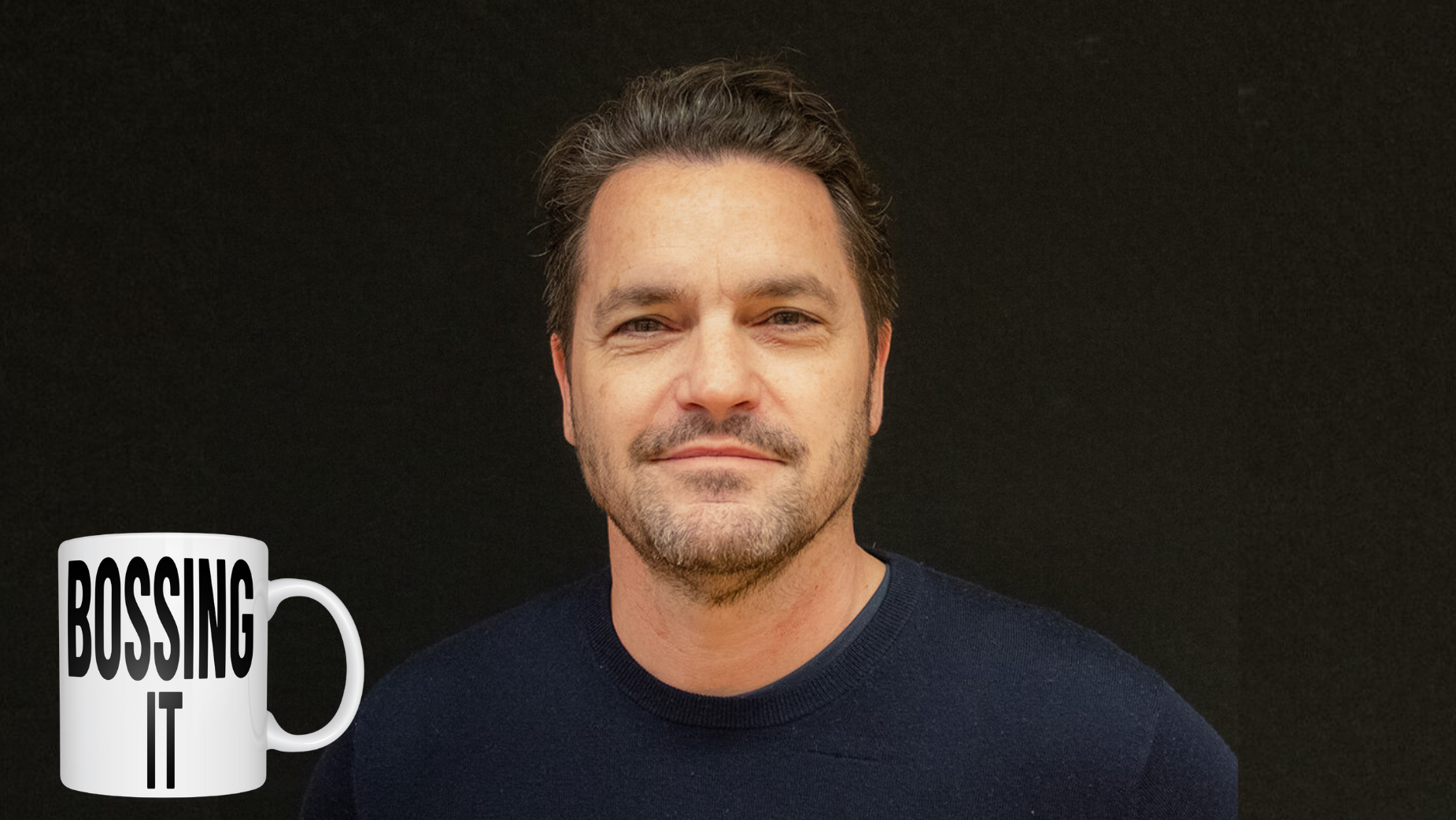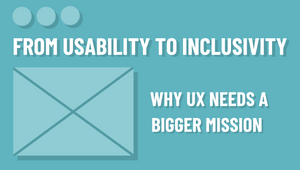
Phil Burgess on His “Leadership by Walking-About” Style

After 25 years of leading client relationships and agency teams, Phil Burgess has a broad range of experience across both digital and creative agencies. From the very early days of digital media his experience now includes offline and traditional media which he combines with a focus on performance and results.
Phil has offered his holistic view of the media landscape to clients across a range of categories, including brands such as L'Oreal, Enterprise Rent-A-Car, Flash, Allianz, John Lewis and Converse.
LBB> What was your first experience of leadership?
Phil> My first experience with leadership came when I transitioned from account manager to director. It was both frustrating and a bit scary due to the abrupt ‘hands-off’ approach to managing me.
It was only later that I realised this shift was intentional - a way to pull the rug out from under me and compel me to step into a leadership role. Initially, I was nervous, fearing failure and potentially undermining my self-confidence.
However, it turned out to be a profoundly empowering experience, teaching me the transformative power of delegation. I’ve come to appreciate how effective delegation not only drives collective success but also fosters individual growth and confidence.
LBB> How did you figure out what kind of leader you wanted to be – or what kind of leader you didn’t want to be?
Phil> Early in my career, I was fortunate to have a boss who set an inspiring example of leadership.
His management style gave me the confidence to explore opportunities I might not have pursued on my own. He was brutally honest with me about my flaws and mistakes, delivering candid feedback directly, and importantly, in private. Yet, to others, he was unwavering in his support - standing by me through both my successes and failures.
This balance of honesty and advocacy was an invaluable lesson and a great gift. It’s a lesson I carry with me and strive to replicate in my own leadership style.
In my formative years I found that I was building rewarding relationships by walking around and talking to people from all parts of the agency, getting to know them by asking lots of questions and understanding their motivations. So, I leant into that, and now you could describe my style as “leadership by walking-about”.
LBB> What experience or moment gave you your biggest lesson in leadership?
Phil> Throughout my leadership career, hiring has been one of my greatest learning curves. I tend to lead with my gut instinct, which has occasionally led to regrettable decisions.
However, for every misstep, there have been dozens of brilliant hires—people who, on paper, may not have seemed like the perfect fit but turned out to be exceptional. Had I let those few mistakes shake my confidence, I might have defaulted to a ‘safer’ hiring approach, missing out on real talent.
My lesson? Don’t fear mistakes - they’re part of growth. If you do, you’ll only clip your own wings. Every misstep is an opportunity, provided you respond with the right mindset. Staying in your comfort zone may feel safe, but it’s not where real progress happens. Also, it’s not very interesting.
In my view, true growth comes from having the courage to push boundaries and giving yourself the freedom to make mistakes, learn and improve.
LBB> Did you know you always wanted to take on a leadership role? If so how did you work towards it and if not, when did you start realising that you had it in you?
Phil> Leadership wasn’t something I really thought about at the beginning of my career if I’m honest. Ironically, my biggest motivation to lead emerged from watching those whose leadership styles were flawed or ‘messy.’ I admired their strengths and learnt from them, but I also recognised where their approach held their teams back from reaching their full potential.
As someone who is inherently a ‘people person,’ I genuinely enjoy seeing others thrive. For me, leadership isn’t about wielding authority; it’s about guiding and mentoring the teams I’m accountable for so that they fulfil their potential. I guess you could call that my leadership philosophy.
LBB> When it comes to 'leadership' as a skill, how much do you think is a natural part of personality, how much can be taught and learned?
Phil> You can certainly learn how to be a better leader. I try all the time to understand better what the team needs and how I help them achieve their potential. So that never ends, and I genuinely learn more about improving as a leader from the demands and expectations of the young, smart talent joining our agency every year.
But I believe that the best leaders instinctively understand people.
I’ve also found that being authentic is really important. I grew up, professionally, at time when leaders were expected to be a certain way (quite aggressive, dominant, blunt, possessing all the answers) and it took some time for bosses and colleagues to accept that I was getting results with my style of leadership.
But I couldn’t have behaved like others, even if I’d wanted to. Plus, people can spot a phoney a mile off.
LBB> What are the aspects of leadership that you find most personally challenging? And how do you work through them?
Phil> One area I find particularly challenging is having difficult conversations if someone isn’t performing. Confrontation isn’t something I thrive on (unless it’s a healthy debate about the best pub in Soho…it’s the Coach and Horse btw).
That said, there have been many times when I’ve had to navigate tough discussions, including performance reviews and dismissals. In these moments, I prep heavily and make sure I really think it through…those are times are when instinct isn’t the right approach.
LBB> Have you ever felt like you've failed whilst in charge? How did you address the issue and what did you learn from it?
Phil> The short answer is yes. I once witnessed toxicity within a previous company and didn’t address it early enough. To make matters worse, I initially misidentified what the problem was, focusing on the wrong person because I didn’t take the time to look deeper into the situation.
This experience taught me a valuable lesson: to acknowledge a problem quickly but dig beneath the surface of an issue rather than reacting to the behaviour that’s immediately visible. By identifying the true root cause, I can now address problems more effectively and prevent them from escalating.
LBB> In terms of leadership and openness, what’s your approach there? Do you think it’s important to be as transparent as possible in the service of being authentic? Or is there a value in being careful and considered?
Phil> My natural tendency is to transparency, but it’s not always appropriate. Openness breeds trust and empowers the team to make the right decisions in the moment. I tend to trust my gut in specific situations...you know who you can trust and who you need to be more considered with.
I firmly stand by the motto: Share the credit, take the blame. When you empower your team to try new things, you can’t then be super critical for trying and failing. I had one boss who described it as responsible risk taking, which makes sense to me.
In a leadership role, I believe in holding myself accountable for my team’s output and always looking inward when mistakes happen. This mindset not only builds trust but also encourages innovation and resilience.
LBB> What are the most useful resources you’ve found to help you along your leadership journey?
Phil> Feedback and criticism are the most effective resources along your leadership journey. It’s important to be open to it to help your growth, but hard not to react emotionally to it sometimes.
Apart from that, being curious is critical. I end up learning as much from the younger members in the team as I do from my peers. They have a different take, are less accepting of the status quo and a bullshit filter which I find refreshing. Having a diverse range of voices and inputs is really important for continued growth in an ever more complicated world.













